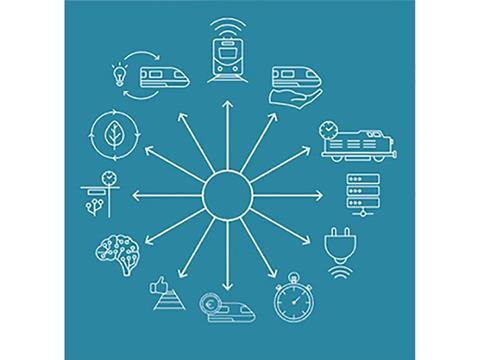
EUROPE: The Shift2Rail joint undertaking formed to promote strategic research and innovation in the European rail sector has published its 2018 call for proposals, based on its amended Annual Work Plan 2018.
The call for proposals covers 18 topics, of which seven are open to Shift2Rail joint undertaking members and 11 are open calls available to non-members. Submissions should be received by April 24.
Co-funding made available by the S2R JU for this call is €78·7m, while a call for €1·6m had already been launched and other procurement activities add a further €670 000.
The topics are:
- virtual certification and smart planning;
- development of technology demonstrators for the next generation of traction and adhesion management systems;
- implementing new technologies for the TCMS;
- advanced signalling, automation and communication systems;
- research into optimised and future railway infrastructure;
- passenger service platform specifications for an enhanced multimodal transport ecosystem including mobility as a service;
- technology demonstrators for competitive, intelligent rail freight;
- technical solutions for the next generation of TCMS;
- analysis for moving block and implementation of virtual coupling concept;
- modern methodologies and verification for GNSS on railways and virtual test environment;
- communication environment assessment and validation;
- measuring and monitoring devices for railway assets;
- semantic framework for multimodal transport services;
- supporting the implementation of the IP4 multimodal transport ecosystem;
- radio communication and simulation of train dynamics for distributed power within long trains;
- paradigm shifts for railway;
- transversal exploratory research activities and knowledge transfer;
- innovative/breakthrough mobility concepts (with rail as backbone).
'We are delighted to get into the next generation of our projects', said Shift2Rail Executive Director Carlo M Borghini. Some programmes are expected to reach the level of prototype demonstrations in an operational environment, while the open call for 'breakthrough topics' would lay the ground for future research and applications.

















